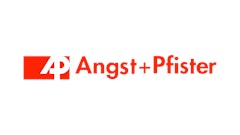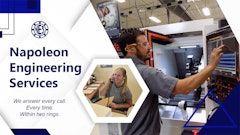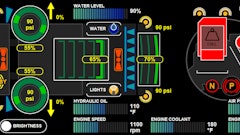The Siemens Foundation announces it has launched a new STEM Middle-Skill initiative, devoting millions of dollars to advancing the development of the essential skills needed for high-growth jobs in science, technology, engineering and math (STEM) fields. Middle-skill jobs typically require strong technical skills and a two-year degree, occupational license or certification. Such jobs, particularly in high-demand STEM fields, often pay salaries upwards of $50,000 after two years or less of higher education. The foundation’s work will focus on young adults in the U.S.
The Siemens Foundation’s new program direction was outlined on October 26 in Washington, D.C. at an Aspen Institute event announcing the first class of Siemens Technical Scholars. A partnership between Aspen and the Siemens Foundation, the program recognizes and provides scholarships to exemplary young adults in top STEM programs at America’s best community colleges, telling their stories of success and describing the opportunities that STEM middle-skill jobs offer other young adults, their communities and our nation. The Siemens Technical Scholars program builds on the success of the Aspen Prize for Community College Excellence – the nation’s signature recognition of community colleges that achieve exceptional levels of student outcomes during college and in the careers that follow. The scholars announced are all enrolled in or have completed programs at Aspen prize finalist colleges; eligibility for 2016 will be extended to all 150 prize-eligible institutions.
As part of its new strategy, the Siemens Foundation also announced a partnership with the National Governors Association Center for Best Practices to identify effective work-based learning models and scale them – as a critical component of state efforts to educate and train young adults for STEM middle-skill careers. In addition, the Siemens Foundation is supporting the NGA Center in its efforts to help the winners of the American Apprenticeship Grants, a $175 million dollar federal investment by the U.S. Department of Labor, succeed in expanding and scaling apprenticeships in the U.S.
By partnering with the Aspen Institute’s College Excellence Program and the National Governors Association Center for Best Practices, the Siemens Foundation is helping young adults understand the potential of STEM middle-skill jobs and identifying and scaling proven models of training to get them there.
“Middle-skill STEM education and training are critical elements in building and sustaining America’s workforce and economy,” says Siemens Foundation CEO David Etzwiler. “The gap between the jobs being created in STEM industries including advanced manufacturing, energy, healthcare and information technology, and the opportunity for many young people to pursue them is simply too large to ignore. Driving more STEM middle-skill development is a crucial factor in closing the opportunity gap and setting students on a path to a career.”
Nearly 50% of STEM jobs do not require a four-year degree and pay $53,000 on average, a reflection of the high demand from employers.
- Over the next decade, 15 of the 20 fastest-growing jobs in America will be in STEM. Within five years, there will be another 2.4 million STEM job openings.
- In 2014, four in 10 Americans under the age of 25 were either unemployed or underemployed.
- In September, the unemployment rate for young people ages 16 to 19 in the U.S. was 16.3%, more than triple the national rate.
- Some 5.6 million young people in the U.S. are not in school and are not working.
- By 2020, 65% of all jobs will require post-secondary education or training.
In an effort to address these underlying challenges in the United States, the Siemens Foundation is focusing on three core strategies in its STEM Middle-Skill Initiative:
- Partner with world class organizations to raise awareness about the opportunities available through STEM middle-skill jobs
- Promote a positive perception of STEM middle-skill career opportunities
- Identify and scale effective training models
“The Siemens Foundation understands the valuable private-sector perspective and the immense benefits of educational programs that include apprenticeship and on-site work training,” says Josh Wyner, Vice President and Executive Director of the College Excellence Program at the Aspen Institute. “It is critical that community colleges and employers work together to achieve what students care about most: strong skills that align with good jobs. There are top-flight programs at community colleges across the country providing the quality degrees and job-ready skills that employers need. Our goal is to learn more about what works, share those successes and challenge more community colleges to deliver that kind of excellence.”
“A middle-skill education is not just a basic requirement for many of today’s open positions, it’s also the foundation for furthering one’s career in what is increasingly a STEM and software driven economy,” adds Eric Spiegel, President and CEO, Siemens Corporation, and chairman of the Siemens Foundation’s board of directors. “The Siemens Foundation and its partners are advocating and creating better programming and awareness of STEM middle-skill development across the country to help students, parents and educators prepare our young people for the future.”
The Siemens Foundation continues to support STEM education and excellence in other ways as well, notably through its renowned Siemens Competition and other programs to ignite and sustain America’s STEM talent, which are important elements in the ongoing efforts to help bridge today’s pressing opportunity gaps.





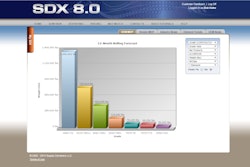
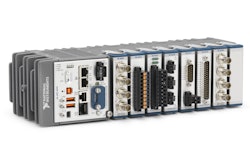


![Hcm Ax Landcros Press Release[32] jpg](https://img.oemoffhighway.com/mindful/acbm/workspaces/default/uploads/2025/11/hcmaxlandcros-press-release32jpg.mAEgsolr89.jpg?ar=16%3A9&auto=format%2Ccompress&fit=crop&h=135&q=70&w=240)
